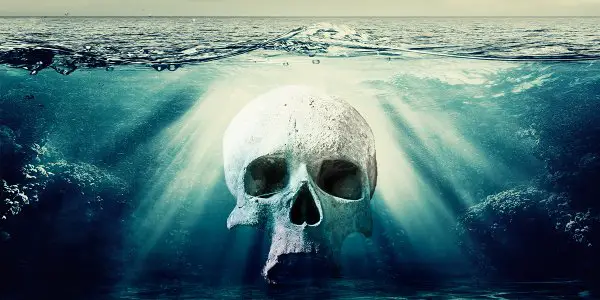Underwater Robots Just Discovered the Largest Dead Zone on Earth

by Amanda Froelich via Truth Theory
Last week, researchers made a disturbing discovery. With the help of underwater robots, they found the largest ocean dead zone in the world. The area is larger than the size of Scotland and is believed to have been exacerbated by climate change and runoff from the land. Because the dead zone is growing, the region’s fishing industry is threatened
The research was published last week in Geophysical Research Letter. “Our research shows that the situation is actually worse than feared – and that the area of dead zone is vast and growing,” said Dr. Bastien Queste, lead author. “The ocean is suffocating.”
“Of course all fish, marine plants and other animals need oxygen, so they can’t survive there,” Queste added. “It’s a real environmental problem, with dire consequences for humans too who rely on the oceans for food and employment.”
As IFLScience reports, researchers have known for some time that there is a dead zone in the Gulf of Oman. Studying the phenomena has been a difficult task, however, mainly due to piracy in the region and geopolitical instability. Both factors have limited research in the area for at least 50 years.
With the help of underwater robots, scientists from the University of East Anglia and Oman’s Sultan Qaboos University were able to study the extent of the dead zone. The robots were sent down to 1,000 meters (3,280 feet) for a full eight months. Their task was to survey the region and send back data via satellites. With the newly-acquired data, researchers were able to build up an image of the oxygen levels and the underwater currents that move oxygen around at depth.
The dead zone sits between 200 and 800 meters (650 to 2,630 feet) beneath the surface. Its size is comparable to Scotland, making it the biggest and thickest ocean dead zone in the world. The most concerning part is that it is growing.
When oxygen is absent in a marine environment, the way nitrogen is moved through water is affected. This affects local wildlife, as well as the way nutrients cycle through the ocean. A lack of oxygen can lead to the production of nitrous oxide, which is 300x more potent than carbon dioxide.
Even if action is taken to curb overfishing and clean up Gulf of Oman, the dead zone is expected to grow. Now is the time for every human to participate in sustainable change, to ensure future generations and wildlife inherit a hospitable planet.
What are your thoughts? Please comment below and share this news!
Source: IFLScience
Image Credit: tolokonov / 123RF Stock Photo
Image Credit2: Pixabay

Leave Comment: